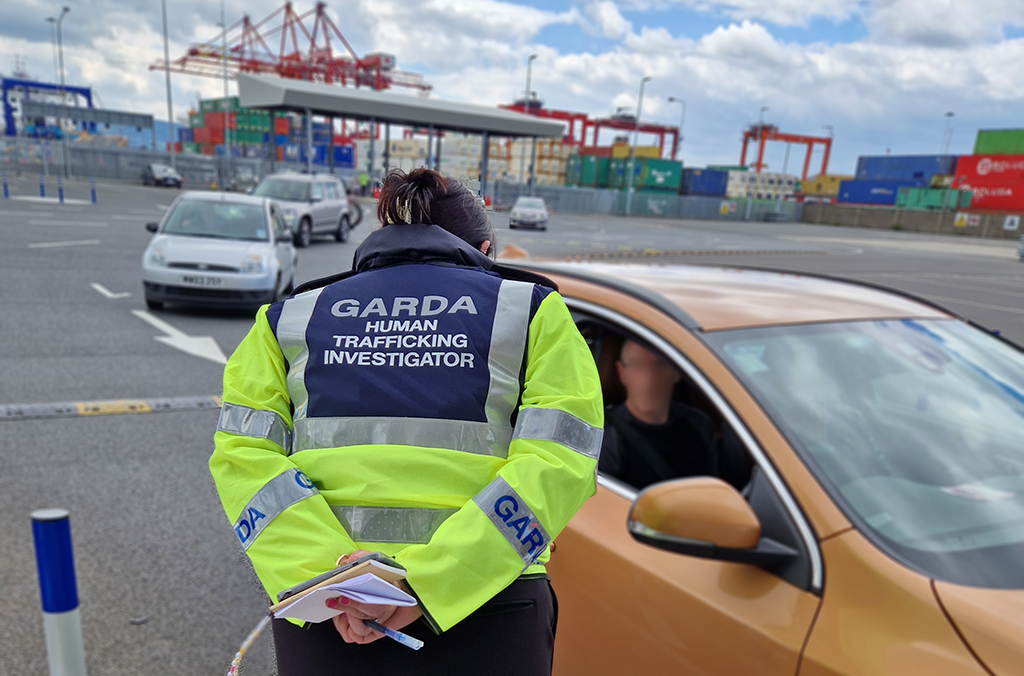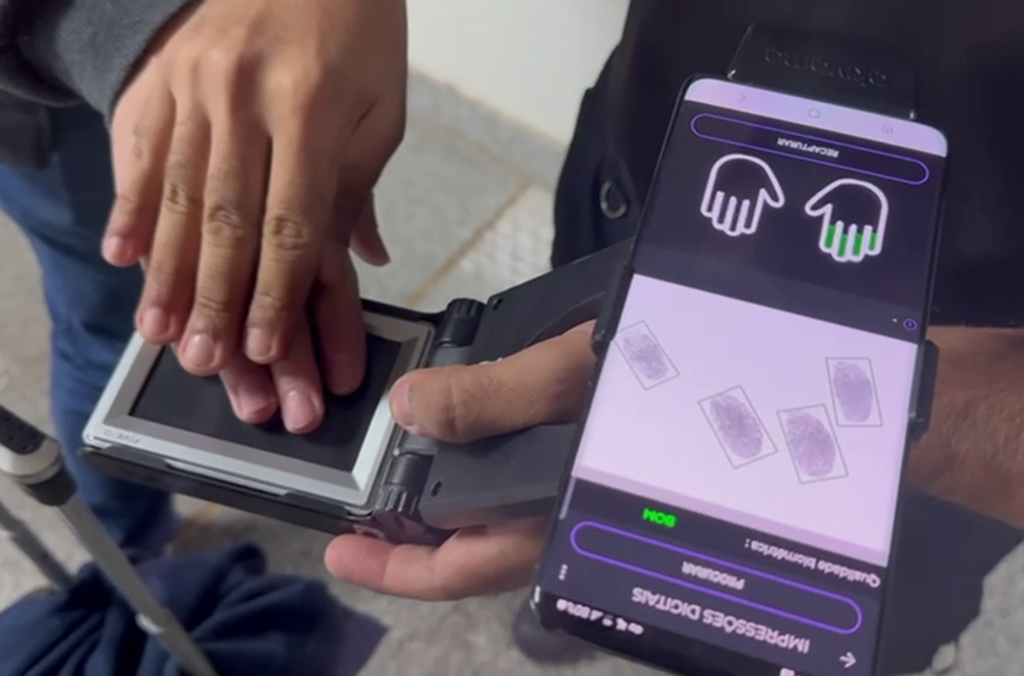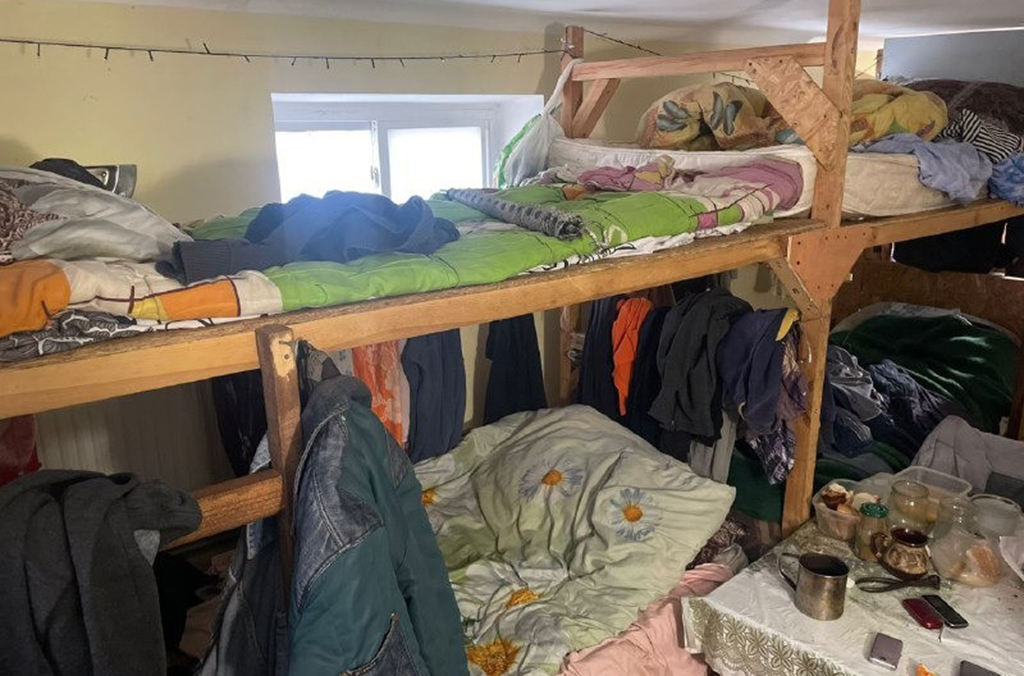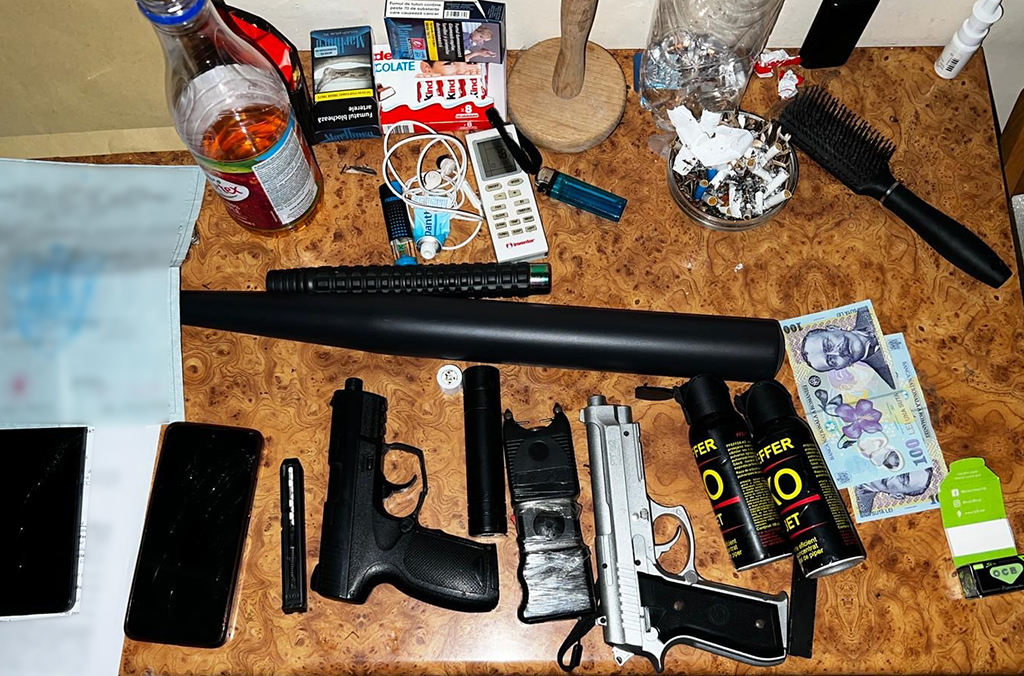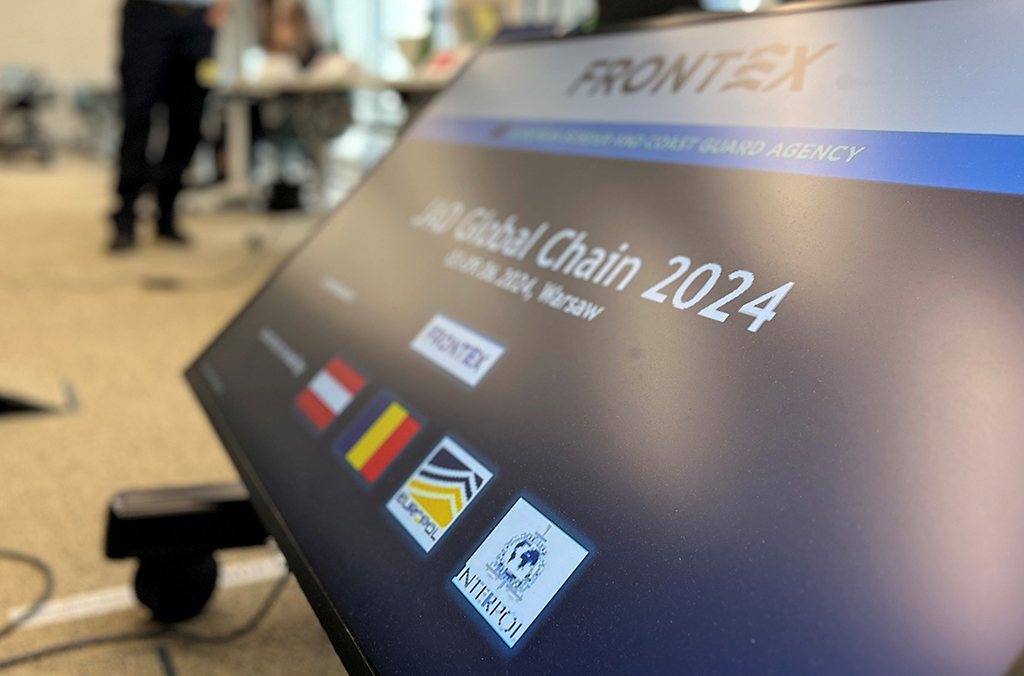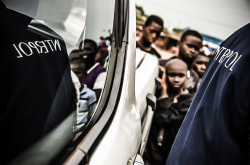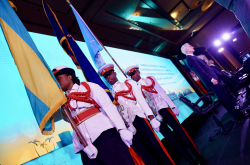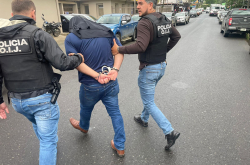LYON, France – A large-scale joint operation against human trafficking has led to 219 arrests and the identification of 1,374 potential victims, including 153 children, across 39 countries.
Operation Global Chain (3 – 9 June 2024), which was led by Austria and coordinated by Romania, Europol, Frontex and INTERPOL, aimed to disrupt high-risk criminal networks, focusing on cases of sexual exploitation, forced criminality and forced begging.
The operation encouraged national authorities to conduct targeted activities in their respective countries, to facilitate cross-border cooperation and to raise public awareness. The approach involved police forces and border guards from several continents, focusing on the criminal networks behind the trafficking of human beings, with particular attention paid to cases involving child victims.
276 new investigations launched
Inspections were carried out at hotspots around the world, with officers looking for signs of trafficking and forged travel documents. Checks against INTERPOL’s global databases yielded 12 hits, including two subjects of INTERPOL Red Notices.
In order to cross-check data collected on the ground and allow for the exchange of information between participating countries, officers worked together at a coordination centre at Frontex headquarters in Warsaw, Poland.
A total of 276 new investigations have been launched as a result of the action week, with an additional 362 suspects identified. Authorities also seized 2,074 criminal assets such as cash or devices, and detected 363 fraudulent documents.
Operational highlights
In a particularly difficult case, Hungarian authorities arrested a local couple suspected of sexually exploiting six of their children, as well forcing them to beg on the streets. Judicial, medical and psychological experts have been involved and the children are now in protective care.
Vietnamese authorities uncovered a human trafficking scheme involving a Chinese interpreter working for a company in Laos. The suspect had lured 14 Vietnamese individuals with promises of high-paying overseas jobs, only to force them into creating fraudulent online accounts for financial scams. Victims worked 12-hour workdays, extended to 14 hours if they failed to recruit others, and had their documents confiscated. Families were extorted up to USD $10,000 to secure their return to Vietnam. This case further highlights the trend of human trafficking for forced online fraud, first detected by INTERPOL in Southeast Asia during Operation Storm Makers in March 2022, and later in other regions, leading to the publication of an INTERPOL Orange Notice.
Romanian officers arrested a suspect for recruiting underage victims from disadvantaged backgrounds and forcing them into begging and sexual exploitation. The trafficker withheld their earnings and used physical violence for control.
The National Police of Ukraine dismantled an organized crime group targeting vulnerable persons, identifying three suspects who controlled and coerced a dozen victims into forced begging. In another case, officers arrested an individual suspected of forcing a disabled person into a sham marriage. The victim has been safeguarded by Ukrainian authorities.
Commenting on the results, Richard Chambers, INTERPOL’s Director of Organized and Emerging Crime, said:
“Operations such as Global Chain demonstrate that no country or continent is immune to trafficking and exploitation. Whether committed by family members or highly organized crime groups, the impact on victims is devastating. As a global law enforcement community, we are committed to sharing the vital intelligence needed to bring all perpetrators to justice.”
Jean-Philippe Lecouffe, Deputy Executive Director of Europol, Operations Directorate, said:
“Close and efficient cooperation between law enforcement and border protection authorities on an international level is key in targeting those who exploit the most vulnerable among us. This year’s impressive results show that the despicable crime of human trafficking is best fought together.”
Lars Gerdes, Deputy Executive Director for Operations at Frontex, said:
“Human trafficking is an abhorrent crime that preys on the vulnerable and undermines our shared values of human dignity and freedom. Detecting these crimes is incredibly challenging due to the frequent absence of victim testimonies, leading to a significant number of unreported cases. This is why our international cooperation is so crucial.”
The week of action was carried out under the aegis of the European Multidisciplinary Platform Against Criminal Threats (EMPACT), with additional support from EU4FAST and INTERPOL’s Projects Turquesa and I-FORCE.
Participating countries:
Albania, Austria, Belgium, Bosnia and Herzegovina, Brazil, Bulgaria, Colombia, Croatia, Cyprus, Denmark, Finland, France, Germany, Greece, Hungary, Iceland, Ireland, Kosovo*, Latvia, Lithuania, Malta, Moldova, Montenegro, Netherlands, Nigeria, North Macedonia, Poland, Portugal, Romania, Serbia, Slovakia, Slovenia, Spain, Sweden, Switzerland, Thailand, Ukraine, United Kingdom, Vietnam
* This designation is without prejudice to positions on status, and is in line with UNSCR 1244/1999 and the ICJ Opinion on the Kosovo declaration of independence.




